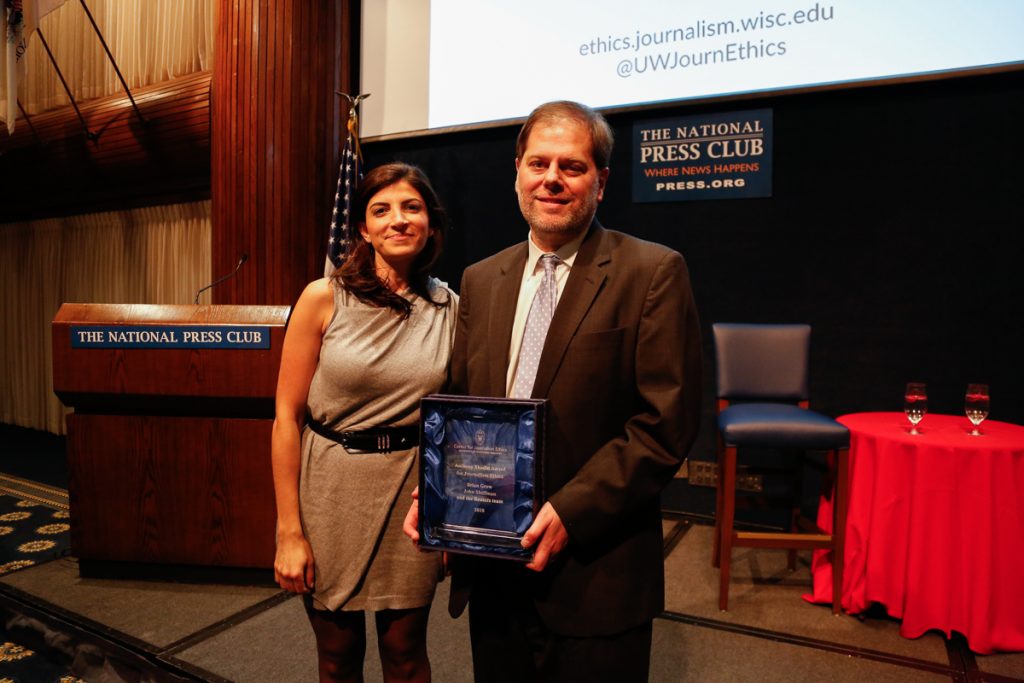
We basically decided to follow the golden rule. How would you want someone to tell you this really surprising and disturbing news?
Brian Grow
Respecting Victims’ Families
Brian Grow and John Shiffman of Reuters worked to uncover the industry responsible for renting, selling and dissecting recently deceased people for profit.
This series dealt with a highly personal topic to the families of those who donated their bodies.
During interviews with family members, Grow and Shiffman often had to put aside their own professional instincts for reporting and investigative norms to show the victims’ families respect. Many relatives struggled with the news of where their loved ones’ remains had gone; empathy and deference were prioritized over transparency and reporting in many cases.
These journalists are open to doing virtual class visits. Contact Center administrator, Krista Eastman (krista.eastman@wisc.edu) for more information.
Brian Grow on reporting The Body Trade
Questions
Q1: Is there a clearly defined line where empathy and respect for those close to a story should supersede the professional obligations of reporting?
Q2: Can you think of any other examples where the privacy of an individual or group could be in conflict with public interest?
Q3: Many stories in the series expose how corporate giants abuse the industry of body donation as much as individual brokers. Does a journalist have similar ethical obligations when it comes to respect for the privacy of businesses?
